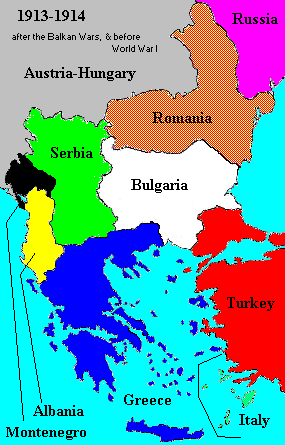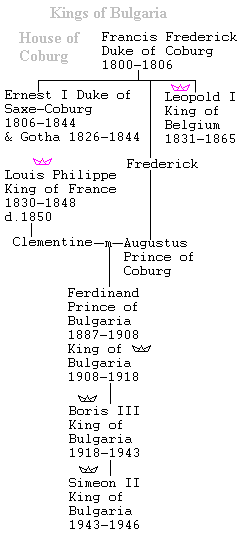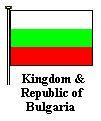|
[ Home ] [ Up ] [ Tours ] [ Turkey-Türkiye ] [ Prehistory Anatolia ] [ Anatolia ] [ Cities ] [ Museums ] [ About ] [ Site Map ] [ Search ]
- Mail to info[at]transanatolie.com
with questions or comments about this web site.
- Copyright © 1997 TransAnatolie. All
rights reserved.
- Last modified:
2023-10-28
-
-
-

|




 when they occupied Adrianople and drew near Constantinople. This advantage, however, was lost in the Second Balkan War (1913), when Bulgaria took on all the other belligerents from the First War, largely in a dispute with Serbia over Macedonia (where a dialect or near relative of Bulgarian was spoken), and was overwhelmingly defeated.
Adrianople went back to Turkey, Macedonia went to Serbia, and other territories went to Greece and Romania.
when they occupied Adrianople and drew near Constantinople. This advantage, however, was lost in the Second Balkan War (1913), when Bulgaria took on all the other belligerents from the First War, largely in a dispute with Serbia over Macedonia (where a dialect or near relative of Bulgarian was spoken), and was overwhelmingly defeated.
Adrianople went back to Turkey, Macedonia went to Serbia, and other territories went to Greece and Romania.

